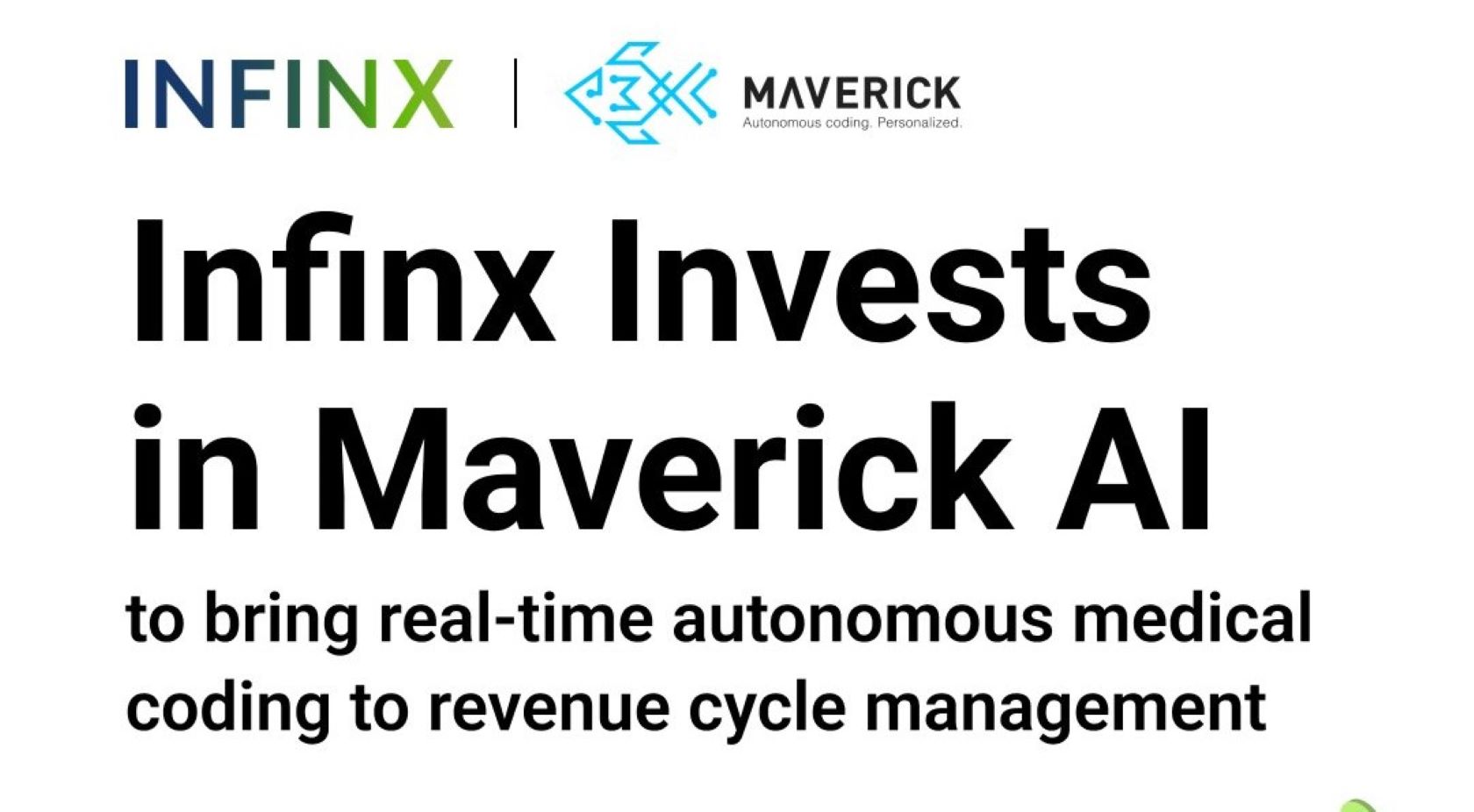Infinx, a well-established name in AI-powered patient access and billing solutions, has announced a strategic investment in Maverick AI, a company specializing in real-time autonomous medical coding. The move is designed to reshape revenue cycle management by using deep learning to streamline coding, reduce manual work, improve compliance, and speed up revenue collection.
Key Takeaways
- Infinx invests in Maverick AI to bring real-time autonomous medical coding into its platform.
- The partnership blends Infinx’s automation platform with Maverick’s specialized AI coding agents.
- Together, the companies aim to tackle key challenges in the revenue cycle, including delays and errors.
- Early results show an 85% direct-to-bill rate and 95% coding accuracy.
- Maverick’s AI foundation is healthcare-specific, HIPAA compliant, and SOC 2 certified.
The Need for a Smarter Approach to Medical Coding
Medical coding has long been one of healthcare’s most frustrating bottlenecks. Converting complex medical reports into standardized codes is both tedious and error-prone, often leading to payment delays, claim denials, and lost revenue. Jaideep Tandon, CEO of Infinx, noted that coding remains one of the biggest challenges in the revenue cycle today. It’s not surprising when you consider that, according to a Vultr report, healthcare providers are expected to allocate 26% of their IT budgets to AI in 2025.
Infinx is no stranger to this space. For more than 14 years, the company has provided a range of patient access and revenue cycle management (RCM) solutions, covering everything from prior authorizations to claims. Its platform leans heavily on generative AI, machine learning, and automation, supported by a large workforce in India that helps serve U.S. healthcare providers.
Maverick AI, meanwhile, has been building a reputation as a leader in autonomous medical coding. Its platform, developed by a team of RCM specialists and machine learning engineers, uses a generative AI foundation tuned specifically for healthcare. The system’s coding agents have been trained on millions of specialty-specific charts, giving it both depth and accuracy. Importantly, it’s HIPAA compliant and SOC 2 certified, with data security built in at scale. Maverick AI was co-founded by Yossi Shahak and Michael Brozino, both former McKesson executives.
How the Partnership Works
The collaboration brings together Infinx’s broad automation platform and Maverick’s real-time AI coding agents. These agents are designed to summarize clinical records instantly and assign codes within seconds of documentation being created. In practice, that means healthcare providers can move records from creation to billing almost immediately, without a human coder stepping in first.
For Shahak, who now leads Maverick AI, the partnership is about reach as much as capability. “By merging AI intelligence with operational expertise, we’re solving coding delays and errors head-on,” he said, pointing out that Infinx’s established customer base gives them an effective channel to deploy at scale.
Measurable Results and Future Outlook
Early numbers suggest the technology is delivering. Customers are seeing an 85% direct-to-bill rate, meaning the vast majority of cases are coded in seconds and sent directly to billing systems without manual review. Accuracy has reached 95%, significantly cutting down on claim denials and payment rework.
The system also scales effortlessly handling unlimited volume without the need to expand staff. It’s worth noting, though, that the technology isn’t pitched as a replacement for human coders. Instead, it allows coders to dedicate their time to complex cases while leaving routine, high-volume work to AI. That balance could help organizations maintain efficiency while still ensuring expertise where it matters most.
For Infinx and Maverick AI, the bigger picture is about where healthcare is heading. Across the industry, providers are seeking ways to use AI to strengthen financial performance and reduce administrative strain. By automating one of the most labor-heavy parts of the revenue cycle, this partnership could give providers more room to focus on what really matters: patient care.
Related FAQs
Q1. What is medical coding?
A1. Medical coding is the process of translating medical diagnoses, procedures, and services into standardized alphanumeric codes. These codes are used by healthcare providers for billing purposes, specifically to submit claims to insurance companies for reimbursement.
Q2. How does AI help in medical coding?
A2. AI helps by automating tasks that are repetitive and time-consuming. It uses technologies like natural language processing to read and understand clinical documents, then it automatically suggests or assigns the correct codes. This reduces errors, speeds up the billing process, and frees up human coders to handle more complicated cases.
Q3. What is revenue cycle management (RCM)?
A3. Revenue cycle management (RCM) is a term for all administrative and clinical functions that contribute to the capture, management, and collection of patient service revenue. It involves tasks from patient registration and appointment scheduling to final payment of a balance.
Q4. Is patient data secure with AI medical coding?
A4. Yes, companies like Maverick AI and Infinx prioritize data security. The platforms used are designed to comply with strict regulations like HIPAA (Health Insurance Portability and Accountability Act), which ensures the privacy and security of patient health information. They also undergo security audits like SOC 2 certification.



















